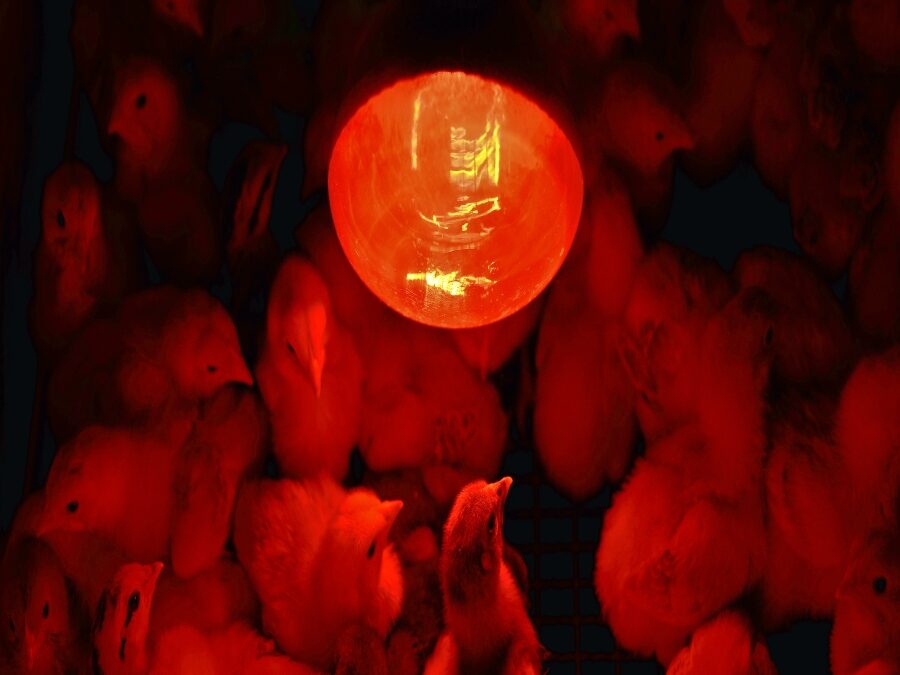
by Lucy Zhang | Jan 25, 2021 | flash fiction
Protection
Erik is raising three chicks in his backyard. Erik is always telling us how he’ll have fresh eggs once they’re grown, bright orange yolks from the paprika-mixed grains he’s feeding them, tough shells that require a good thwack to crack. We’re all jealous so we tell him a hawk will snatch them up while he’s at school, or that the neighbor’s Pit Bull Terrier will break free from its leash and turn one into puppy chow. When we visit, he has a new contraption built for the chicks: a miniature wooden house with ramps and ladders and a nesting box. He built it in woodshop. We don’t take elective classes like woodshop. We take computer science or statistics because we’re only allowed to be doctors or engineers. And not even really doctors, because mom says women can’t stand as long especially after having children, so they can’t perform surgery well. Where are the chicks? We ask. They’re in the main house, Erik says. Under the asphalt roof so no hawks can pluck them away, behind the walls so no dogs can bite into them. We peer into the small square window, an unevenly cut hole in the wood, and we see the fluffy wing and tiny beak of a chick. But when will they go out to play? we wonder. When I let them, Erik says. But we never see him let them out again.
Freedom
When it rained, we’d pick up earthworms with our bare hands, moving them from the middle of the sidewalk to the grass. We were little heroes saving lives on our way back from school like it was nothing. Because real heroes don’t ask for praise or recognition. The day after a heavy storm, the sun already out and drying the roads and tennis courts, we saw one long earthworm flattened in the middle with its two ends still wriggling, like life was still in reach so long as it could break free of its other half. We dug out the metal ruler from our pencil case and sliced down the earthworm’s desiccated middle. Then we picked up each wriggling half and moved them to the damp soil patch besides mom’s snow pea plants. Be free, we thought. Survive. Later, after we finished our homework and had computer time, we looked it up online and prayed we made the cut behind the earthworm’s clitellum, so at least the tail could regenerate, no suffering prolonged.
Affection
Duo Duo (“多多” – nicknamed so by my aunt and uncle because she was an unexpected child, an extra element tacked onto their lives) got a bernedoodle named Bilbo. I found out through her Instagram stories. So did my parents. My parents ask me why she isn’t having kids and I tell them it’s a decision that my cousin and her husband can make on their own. I don’t tell my parents that the bernedoodle is an emotional support animal. That’s information for my cousin to share. Bilbo is a fluffy, soft, hyper thing always vying for human attention. The moment I look away, he begins to whimper, and I have to crouch down and start petting him again. He pants and lets his pink tongue dangle out of his mouth like he wants more of something. My cousin picks him up like a baby. “Do you want to hold him?” Duo Duo asks. “No,” I say. Not to offend. Maybe I’m over projecting my personal preferences onto the dog; just because I don’t like being carried or tossed around or hugged doesn’t mean Bilbo doesn’t. But really, what’s so good about being held? Your unpredictable gushes of skin and bumps of spine exposed to foreign fingertips? Good for them though, I think. I hope taking care of a dog will keep her mind off any personal troubles. But I hope she doesn’t ask me to take care of him when she flies back to Shanghai for Chinese New Year. I’d keep him fed, for sure, but I’m not sure I can shower Bilbo with lots of cuddles in bed, and Bilbo seems like the kind of dog who needs that kind of affection to survive.
Companionship
Spud nibbles on pineapple leaves. He’s a fat, white rabbit–the type raised for eating. Of course, my sister is vegetarian and would never eat her foster pet (which she never ended up returning, so I suppose Spud is hers now). When we were little, we thought: we will get a dog once we’re adults; we will get a cat; we will get a few ducks and dig a pond for them; we will start a small farm where no one eats anything with a cute face, and instead you cuddle with them as you please. But it’d have to be after we became adults because we knew dad had eaten dogs used for his medical lab experiments at Fudan University. He said dog tastes bad, but we stayed vigilant and waited patiently until we were across the country, living on our own. Now my sister has one rabbit and one chinchilla–used to be two but she found one toppled over like it had passed in its sleep a Friday evening after she’d returned from work. I don’t know if I can raise something that’ll die before me. I have trouble squashing the Machiavellian thought from my head: what was the whole point? So I focus on seven-pound Spud and the spiky pineapple leaves, drag the FaceTime window to the side of my screen and navigate to Google: it looks like pineapple leaves are nutritious, packed with fiber and calcium oxalate and Bromelain, which reduces swelling and inflammation, and maybe I’ll boil a few leaves and drink the water as tea because my body feels a bit inflamed and I don’t know why these white blood cells are trying so hard to fight outside invaders that now I’m the one left burning.

by Kate Finegan | Jan 21, 2021 | flash fiction
1
Remember when the river ran just beyond our door, when rains replenished this ribbon unfurled blue and raspberries ripened close so we could smell them through our bedroom window. Remember when the robins flew in with their red breasts and you sucked the red of this body and ran the river of your tongue across this stomach wet, and wet, this body swelled and crested.
2
You smile at me, and I can almost hear your skin crack.
3
Remember when the rain rebirthed the earth in wriggling worms.
4
Remember when you said you’d like to eat raspberries off this body’s breasts, so we plucked buckets full, and you placed the cool cups of them over this body’s nipples, dug your tongue beneath the berries, sucked them off without the lightest graze of skin, bit down just-too-hard enough to make this tongue curl back and sigh, tongues two tributaries meeting, tongues exchanging sweetness when the berries and their seeds were done and your mouth tasted of summer.
5
You smile at me, and I take this word within the redness of this mouth, roll it around, suck its salt like pebbles on a hungry beach, hold it still.
6
On hot days, the salt crust cracking is a requiem.
7
You smile at me. The word I’m tonguing is enough.
8
The Nile, the Amazon, the Yangtze, and the Yellow. The Rio Grande and River Thames. The Tigris and Euphrates, this aching fertile crescent. The Tennessee and Colorado. To think we once flooded valleys to fight the course of blood. To think we ever needed so badly to spell Mississippi we taught our children silly songs. To think still we teach our children songs.
9
In a time like this, it feels wrong to see you smile.
10
In this time of lips like callouses, tongues of pumice, it feels wrong to see you smile. In this time of so little sweat, no beads for this tongue to suck, no slick of skin on skin, too tired. No good morning, here’s a glass of water, sparkling, full color spectrum on the sun-drenched bedroom wall refracted. No drink it down so I can drink you up, no drink it down so you can scream my name. No finger-knots in hair. No get down to the delta of this body, take it all the way to roiling sea. In this time, all we have is smiles.
11
The maps still have their arteries. I trace the blue inside your wrists with this parched tongue and you smile, say remember when it rained for forty days and forty nights and I say that’s a story, what used to be a nightmare but now sounds like a dream. We need a different dove, you say, and I can hear your voice crack, lips crack, all that runs now is blood from these cracked bodies meant for water—remember being bodies made of water—and you say, a dove with water in its mouth. I trace the blue after the blue has gone, beyond your elbow to the crater of your armpit, and remember the rainbow, hope it can mean something else, hope the rain might once again remember this parched bed of earth. You unstick your thighs from the leather sofa, sigh and smile sadly, too tired for anything more than this tongue-scrape traveling to your heart, your inland ocean, and here we are, an ark of two, this promise that if we break, we’ll break together. And the raspberry vines wait outside, and the riverbed lies empty just beyond the door.
This piece was originally published in Gigantic Sequins.
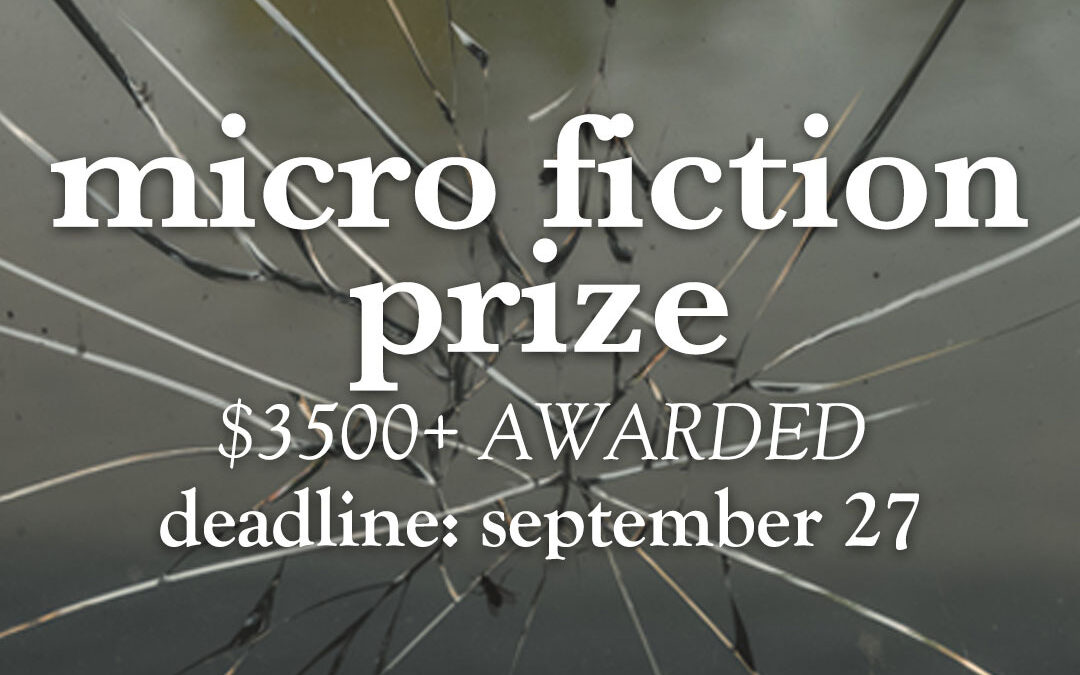
by Fractured Lit | Jan 20, 2021 | micro, news
We’re proud to announce the 25 titles of our shortlist! The submissions we received were resonant, inventive, and so engaging that we’ve had a hard time narrowing down the list! From this list, judge Sian Griffiths will choose her final 3 winners and 5 honorable mentions! Please don’t identify your story title as the shortlist will be delivered to Sian anonymously!
Cultural Competency
The I.C.’s
Slow Motion
the blood we spill and the blood we keep
Bird Day
The Monster That Stole The Moon
The First
New Devotion
A Paranormal Dialogue
Numbers
Gavin and Merle Are Engaged in a Turf War
Orphans of a dead scene
Origami
The Taxidermist and The Baker
And This is How it Ended
With a Glistening Rush
The Eighth Silo
Agates on Her Hands
Closer
Total Control
Negative
In Which Sophie and I Clear a Forest
Bird Resuscitation
Fire
Entomologist’s Girlfriend
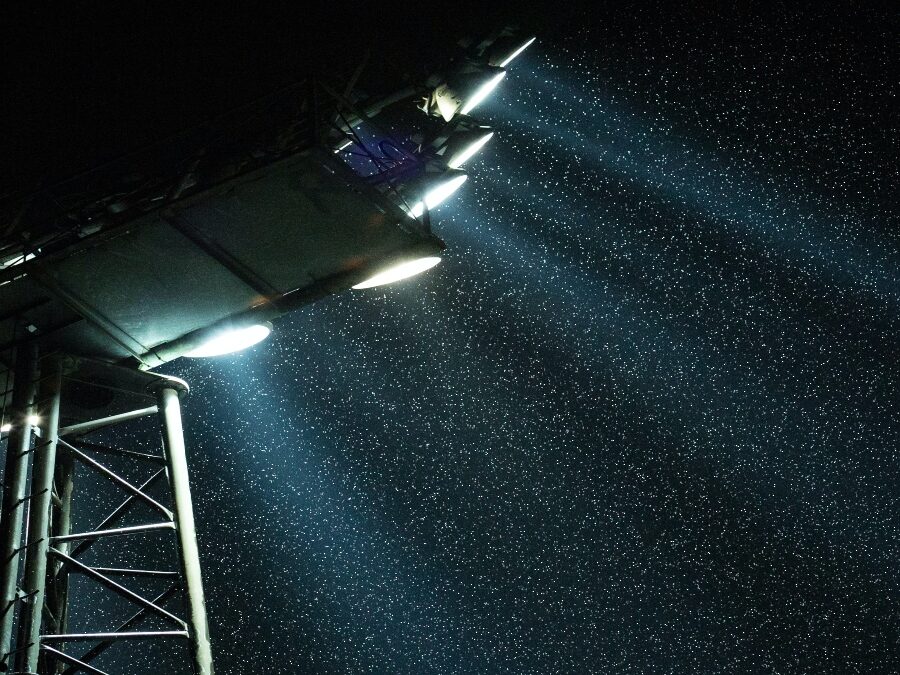
by Ra'Niqua Lee | Jan 19, 2021 | flash fiction
Thursday nights, half the country gathered in their living rooms to watch Chad Dylan Scott shake blonde hair out of his eyes, curse his football teammates, and strip down to his Hail Mary boxers. His abs were like the ridges in an ice tray, rigid, but a jostle and a shake would be sure to make something wet. Dena Brown, twelve and sprouting, watched with her momma from their apartment on the end of the city where the rent was still cheap. “I hate sports,” her momma said one Thursday, “but I like this show.”
By sixteen, breasts had sprung up from Dena’s chest like sunflowers from dirt. She had to tell a boy “No” for the first time. She stepped out of his Cadillac and marched away from his headlights in heels a size too big. Later, inside the apartment, she found her momma watching TV in the easy chair. “You’re late,” she said. “and go put my shoes back where you got them.”
That season, Chad Dylan Scott began his fifth year of high school, second officially, and fell in love with Angel Hearting, the butt-chinned Baptist who waved pompoms as he ass-ed, damn-ed, and hell-ed his team to victory on the football field. Angel could hell as well as Chad. She had the same blue eyes and hair sleek enough to line the coffins her father sold. When she appeared on screen, the dubbed-in studio audience applauded.
Dena graduated two years later. No one clapped for her except her teary-eyed momma. “That’s my baby,” she said, “all my dreams come to bear.” Dena was five feet even, brown like polished wood, and she wore her high school graduation gown like a coatrack in a blanket. She wasn’t big enough for her own dreams, let alone her momma’s.
The finale aired. Dena and her momma watched together, mother and daughter still bonding over fake football and abs, touchdown perfect.
Chad Dylan Scott graduated from fictional high school with two state championships; a prom king crown, sash, the whole tacky get up; one pregnancy scare he never found out about since Angel kept that one in her silk-lined pocket; six fistfights, which made for six come to Jesus moments, glory and hallelujah; around two hundred beers, at least once per episode; a DUI; and a pity date for Lorraine Woodhouse, a wheelchair bound spitfire who spoke four lines in a single episode during season three. Scott went out in a blitz, confetti over the football field, him on the shoulders of his teammates, wide receivers, mostly extras. The screen went black, rolling credits, the end of the scrimmages, the offsides, the hell Scott charged toward Angel.
“That’s done,” said Dena’s momma. She had not yet taken off her work attire, all black with her security guard badge. The evening news started, wildfires and politics. They watched for a moment before turning it off to sit alone together.
Chad Dylan Scott took to doing made-for-TV movies after that, the kind where he could be the boyfriend, the husband, the killer, the man of drool, sweat, and dreams.
Dena watched other shows. She started college, tried beer, hated beer, and dated one boyfriend after another. The older she got the more damns she found in the back of her throat, the pit of her stomach. Nothing quite as soft or as sweet as a Thursday night spent with her momma, thirty-minutes, an abundance of Scotts, all interchangeable, in a prime-time peace that surpassed understanding.

by Fractured Lit | Jan 15, 2021 | news
We’re proud to announce the 53 titles of our longlist! The submissions we received were resonant, inventive, and so engaging that we’ve had a hard time narrowing down the list! From this list, 25 stories will make it to the shortlist for judge Sian Griffiths to choose her final 3 winners and 5 honorable mentions! Please don’t identify your story title as the shortlist will be delivered to Megan anonymously!
Cultural Competency
How To Prepare For Your Child
Mary Annette
Pregnancy Test
Cashmere
The I.C.’s
Compromise
Flawed
Dirty Water
The Chill of Antiseptic
Slow Motion
The Locked Door
the blood we spill and the blood we keep
Bird Day
The Monster That Stole The Moon
Maho Bay
Multiverse
Making Lemonade
Inside Out
The First
In The Beginning
New Devotion
Ruth
One of Our Own
A Paranormal Dialogue
dreamlessness
Numbers
Graffiti
All Clocks Are Wrong
Burial Without Roses
Gavin and Merle Are Engaged in a Turf War
Digging
Orphans of a dead scene
Origami
The Taxidermist and The Baker
Escaping Family
Crossing The Line
Tapping In
And This is How it Ended
If You Are Reading This
With a Glistening Rush
The Eighth Silo
Cold at First
Agates on Her Hands
Closer
Total Control
Love 1
Negative
Reaching Maturation
In Which Sophie and I Clear a Forest
Bird Resuscitation
Fire
Entomologist’s Girlfriend
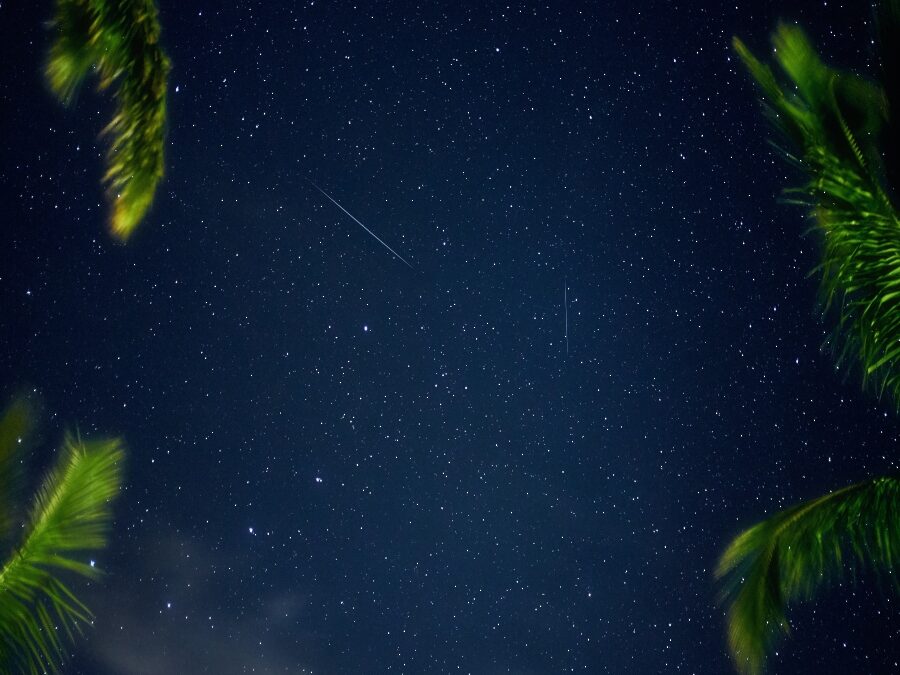
by Meg Pokrass | Jan 14, 2021 | flash fiction
The pool was four feet deep, and we bought it at Target half off. You could float on your back and think, “fun times are here,” because at least you weren’t burning hot.
Mom and I watched it fill up with hose water. She looked around at the back yard, the neglected fruit trees, and said, “I’ve got to call those idiots and make sure they get a gardener.” It stunk from rotting fruit and dog poop.
I wasn’t going to worry about anything. I would just float on my back in my bikini. I would be weightless. There was an annoying flea bite in the crook of my arm, which I sucked on.
The pool was going to be my way of making more friends. I was sick of the two friends I had from last year. Lila and Blythe were both considered to be strange. Lila wasn’t ugly when she washed and brushed her long hair—about once a week. She memorized animal facts. Blythe looked like Pinocchio. She was a violin prodigy. She had a European hair cut—short, black, severe. She was proud of her breasts, which were large, adult size. I didn’t have any breasts yet, but the doctor said not to worry.
I wanted to know if late development meant small breasts. Mom said it didn’t, that she had been the same way. “Worth the wait,” she’d say with an exaggerated wink. Now that dad had his own place and his bi-polar disorder, she had all kinds of new expressions.
In my new pool, I would float on my back when it was dark, looking at the stars. Nighttime swimming had been my dream.
Since there was no one else, I invited Lila and Blythe for a nighttime dip on Saturday. Lila couldn’t come because her family needed to drive to Oxnard. Blythe said she sure as heck would be able to make it. She was all about nighttime and pools and stargazing.
“Show me the big dipper,” Blythe said. “I want to make sure you know which one it is.”
Blythe was wearing her bikini bottoms, but she left her top on the side of the pool. The pool seemed much smaller with her beside me. I was glad it was cheap.
Terribly absent were Lila’s cigarettes. I pointed to the area of the sky where I saw the Big Dipper.
“Uh huh,” she said. “A long bent ladle, right?”
Blythe looked wet and slick—her womanly breasts gleaming. I felt angry at her for taking her top off.
“It looks like a crooked dick,” I said. The pool was a bee cemetery. I scooped two up and threw them out.
“I don’t even really know what a ladle looks like,” I added.
I could hear all the neighborhood dogs talking to each other. A bee might have been marching down my arm. Something tickled.
“You know what a crooked dick looks like?” Blythe said. Her face was large, or maybe it was the moon.
“Not exactly,” I said, trying not to let my eyes get caught on her nipples, “but I’ve seen them, and they all have different shapes.”
True. I had a subscription to Playgirl. My mother had given it to me for Christmas instead of a new bike. Once she’d found a beat-up copy of The Happy Hooker under my pillow. I’d stolen it from a garage sale. When I came home from school, I found it laid out on my dresser next to my hair brush and retainer case. Nothing seemed to freak her, as long as she had two martinis.
“So, like… whose?” Blythe asked.
“I haven’t seen that many dicks, I just have…” If I told her I had a subscription to Playgirl she’d tell Lila, and then God knew what would happen when I stopped being their friend. The water in the pool was getting cooler, the smell of new plastic making things worse. I hoped she hadn’t peed in the pool, though I would not put it past her.
“I have a lot of cousins,” I said.
She smiled at me so brightly then, she almost looked pretty. She squealed, half laugh, half death cry. She said she was getting cold—hey, what a great idea, let’s bake oatmeal cookies.
Suddenly she said, “Could you imagine sucking one of those?”
“God, no,” I said, fast and soft. Her eyes looked back at me big, full of thought. She moved in.
“What do you imagine they taste like?” I knew better than to speak.
“Corn on the cob,” she whispered into my ear, spitting, “with a bit of salt.”
This was not happy news. I knew that violin prodigies lived exotic lives, they were much older than other teenagers. They traveled to Europe.
I imagined Blythe kneeling in front of an audience, her mouth open like a baby bird.
“I’m not ever going to do that,” I said. It sounded fake, as if I were acting in a play.
Blythe moved to the far side of the pool. The moving water sounded smooth. She kept still, cupping her chin in her hands. I wondered if our friendship was done. Her nose was cartoonishly off-kilter, as if a person had sculpted the middle of her face blindfolded. She practiced three hours a day after school, was going to be on CD covers wearing velvet dresses. She was going to be rich. She already knew everything that was going to happen.
(originally published in Damn Sure Right, Press 53
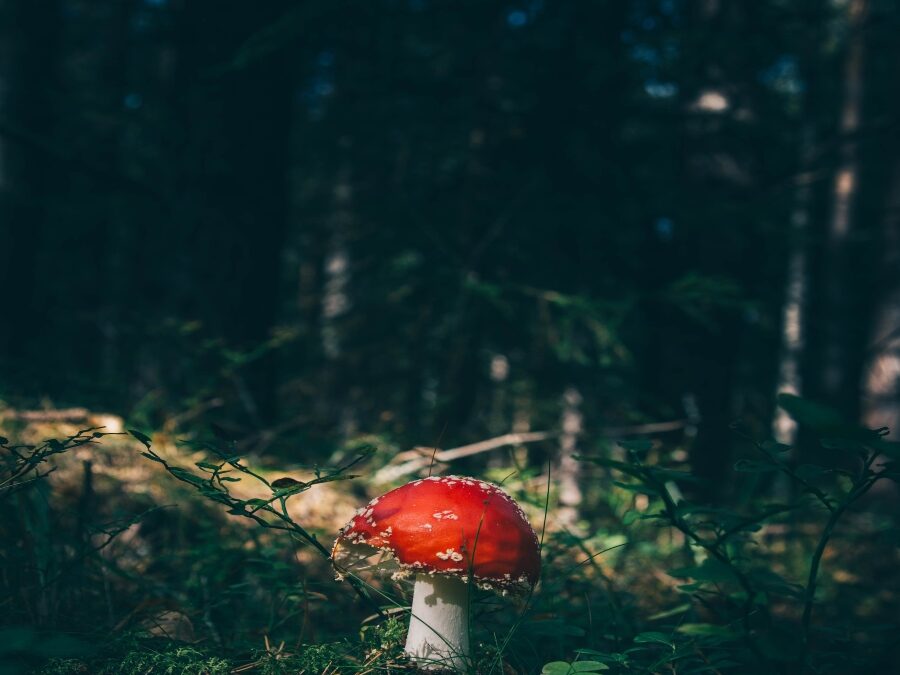
by Veronica Klash | Jan 12, 2021 | news
These pieces have been chosen because the writer has done something special with sense of place. They’ve eliminated the need for a distinction between foreign and familiar. It doesn’t matter if you’ve never seen that place, been to that spot. You know this place because of how this writer has created it.
Joaquin Fernandez’s tale stands out among many short shorts that tackle grief. The author mixes literary techniques like a bartender crafting the perfect cocktail. Detail and specificity arrive in the first paragraph and never leave, cementing a vivid scene throughout. The addition of tension, slowing the heartbeat instead of speeding it up, imbues the moment with depth. Finally, Fernandez’s choice of second person point of view grabs the reader by the collar, involving them in the narrative. An intoxicating combination.
In this expeditious, voice driven flash, Hema Nataraju focuses on a unique moment in time. The use of humor and hyperbole sets up a thrill ride. This is accomplished with brevity. The author isn’t mired in the distraction of description. Characters are introduced efficiently and their engagement is immediate. The setting is clear and so are the stakes. Even if the reader has never seen the vegetable; they now know exactly what it means to stand at an okra bin.
The bitter pain of generational trauma is exposed and juxtaposed with the sweetness of fruit in Noor Hindi’s piece. A heartfelt and heartbreaking tone is deftly conveyed via the author’s choice of an epistolary format. The reader weaves in and out of vignettes rooted in specific surroundings. They are powerfully rendered, with some of them giving the illusion of a life paused. A clever strand of quotes interlaced with an already layered narrative makes this a piece worthy of study.
You don’t read Arriel Vinson’s piece, you experience it. The hyperrealism ensures that weeks later, the scenes will come to you in your most mundane moments and remind you why art is so important. Why minutiae that sneak in unannounced like the sound of leaves or a playground can be just as forceful, if not more forceful than long, luxurious descriptions. Setting doesn’t overwhelm or obliterate Vinson’s story, it flows alongside it. In a compelling current that’s impossible to resist.
Though the beach setting is essential to Michelle Ross’ story, the author doesn’t expend words characterizing it. Instead, emotion and motion-laden imagery portray seminal childhood moments. Trusting the reader to know this place both physically and spiritually without additional prompting, frees Ross to engage in a satisfying game of contrasts. The author pits the unfolding imagination of youth against the simplicity of thought in adulthood, stacking one relationship against another. The result is a clean yet rich examination of motherhood.
In Christopher Moyer’s piece, “the woods” act as a backdrop, but also as a foil for the young narrator and their sister. There is something fantastical and mysterious about two siblings wandering through this setting. Moyer allows those preconceptions to take hold while using them as a counterbalance for a less fanciful narrative. A narrative that’s built on neglect and how it permeates life, oftentimes by choice. By the end, the title takes on multiple meanings and it’s confirmed, this is no fairy-tale.
Our virtual lives collide with the real world creating a space explored in this lyrical flash by Victoria McCurdy. Rhythm and repetition form patterns that allow the reader to slide into the story as if descending a spiral staircase. There’s honesty to the moments McCurdy describes, even in the quick travel into multiple universes, each a branch of a different decision. The sensory detail grounds the narrative and creates openings for the author to insert that most human emotion—vulnerability.
In a single poetic sentence, László Krasznahorkai tells a story that borders on prayer. The breathless format is supported by repetition; it reaffirms the claim made in the first fragment, “I would leave everything here.” As the reader discovers exactly what “everything” is and where is “here”, the pacing is used to highlight the shift in center and subject. The lens widens but the story (and the narrator) remains focused. Here it’s the subtracting of setting which engenders a transcendental tone.

by Jessica Cavero | Jan 11, 2021 | flash fiction
I’m looking for
the way it feels to stand behind doors sliding shut on a train to Ikebukuro and you bow goodbye to me from the platform and I bow to you. I am on my way to that monster cafe we loved, where the slippers they gave us were fuzzy and green with small yellow talons, and you looked like a child come out of a storybook then, balancing on tiptoe, but sitting across from me at the table, you were just a man. The root beer floats had rubber eyeballs popped on the straws. One eye, blue and mean, caught between your teeth.
The way to win me over is
the stationary shop, let’s wait out the rain, you said, our tongues sweet with vanilla-rum. I picked up memo pads with smiling cats on the pages. Happy Birthday, Congratulations. You bought gel pens of varying line thickness, traced my profile on a sheet of newsprint, but only the outside of me and said this is Contour. When I stared at the space like my body was a house I’d just moved into, wondering how you would fill it, you shook your head.
The highlight of my day is usually
lunchtime, looking out my office window. A woman walks her dalmatian past the maple trees and sometimes she will take her dog’s paws, lift him up. They dance on the sidewalk like that, for one full minute, and when the dog tires of the two-step, it rolls in the grass, belly up. Old style, you used to call it, putting your hands on my waist to teach me.
A random fact I love is
Hachiko’s memorial outside Shibuya Station. Now it’s a place where tourists line up for pictures, touching his bronze paws, or where drunk salarymen congregate half-asleep at dawn. But every day for nine years and nine months, exactly at the train’s moment of arrival, he waited for his person, even in death.
I know the best spot in town for
weeping. It’s at the bus terminal in Shinjuku, best if I’m crouched between the lockers and payphone, too drunk to care if the palm reader asking for my hand is a fraud. What are heartlines? What is a life? My palms are exposed and creased with dirt. I offer them up, and the palm reader tells me you are alone in this country, as if it’s a revelation.
Favorite holiday tradition
Tiny Gracie, she is called. The cake topper for my sister’s 10th birthday is a smiling wax girl in a blue dress. After I sing Feliz Cumpleaños a ti over Facetime, my sister balances Tiny Gracie on the kitchen island, sets her on a paper plate raft and her small hands are the waves and the waves hold both of us.
Go-to karaoke song
Name anything by The Cure and I will sing it for you. I will sing Pictures of You. I will sing you were bigger and brighter and wider than snow.
I’ll fall for you if
you lead me through the rooms of your house when the power goes out, my hand in yours. If we take wide-slow steps like we are deep sea divers learning how to walk. If I cannot see your face. If you say, baby, say everything is fine.
My most irrational fear
is that it won’t be illness that gets us in the end. It will be a mouth opening deep in the earth with teeth jutting from the base of its throat, and you falling in, quick and brutal.
The one thing I’d love to know about you is
how you get through the worst of it. How do you not keep the TV on through the night, so the brush of static is like a hand in your hair, and it is close enough for you to call it a haunting? And how do you not look for signs in every winged creature? The praying mantis that sticks to your windshield as you drive too fast on the interstate back home. The dragonfly that lands on your chest pocket like a new button, stays there for hours. Tell me. How you love the world so much, even when it breaks your heart.
I’m convinced that
my sister was right when she said to speak to yourself like you would speak to a friend. I was wrong about my contour. My body was not a house. It was a landscape in winter but light existed in me too.
All that I ask is that you
teach me how to draw, not like the Italian masters, but like a child. I am not trying to make a beautiful thing yet. I want the grit of vine charcoal under my nails. I want the formless sweep of many lines on top of each other, the rise and fall of shapes like breath, yours, mine. Here, alive.

by Shome Dasgupta | Jan 8, 2021 | flash fiction, micro
Yonder Years Ago
So down a synapse they tunneled, carried past sensation burdens: memory waves chute-oscillated, irrigated crevices and canals to harvest minds and remember electric journeys in flashes and sparks. Disconnected and torn, hand-in-hand they went, hesitant and fearful with closed eyes and emptied lungs. They first knew nothing and deemed it better that way.With heavy doubt and trembled silence they asked themselves why embark at all? They whispered these fibers were meant for laceration, were they not? Through molecules and terminals and beyond they went to account their tales of sorrow and sadness. With transmissions and codes, blinks and sighs of moon-lit tides and melodies, they jumped from module to module. In gaps of air they briefly forgot and smiled, landed with criss-crossed legs and silenced tongues. Once transmitted came oft-begged times of yonder years, the magnetic pull like rattled chains — each link a glimpse a glance a meander to amnesia. In forests and trails leading to bits of this and that, they felt the stars drop between their fingers, through palms so sleek, there was no grit of sky. And let the constellations fall they did, to a sunrise they recalled when a flock covered darkness momentarily, as they found feather treasures stuck to their mouth roofs. How hollow they felt then, emptied floods of rays on which they encountered infinite love, memories wandered into deep skull pockets, only to be let loose with a storm so polished they gleamed and yearned for more — for more to remember.
A Catalytic Tilt
So quiet and awestruck they served witness to sunlit creations, autotrophic sustenance through precipitation and concaved clouds gave way, a path for rays beamed forth from opened beaks, yellow and bright, to let pierce nourished souls sway back to forth. A rocking a stirring a birth among muddied banks — there, there an endothermic hunger to know, to process a breath through leaves and teeth and green stemmed bark. A starving, beheld — a chemical yield — moon dropped sugar over concentric ridges, soft ripple to stratospheric levels, an epicenter of space. They sucked in and in, until tilted axis tilted over and ocean skies looked upon their journey, their struggle. Photosynthetic they were in need of a palette for the world to spin upon. Chlorophyll, they entwined like famished roots diving. In and up with flared skin, enraged and seeking until finally full to tongue’s brim with lifted jaws. And how wearily wearily wearily they haunched as pained bone and thorax. And how they heaved — a strife to dart through rivers in search of warmth to cover their throats and peeled tides to rise over and over and over until exposed organs and vines thrusted themselves toward atomic light, twirling to let the suffocated find solace in blinded manner. To grasp, to cling and climb, to hold with strength and fear, they stood upon fertile soil, not of myths and legends but of love and life — a will to follow welcomed air thresholds. Enter, tipped their way and spread throughout lands with whispered thuds of unknown adventures. Oxygen born from rain and carbon traced back to risen spectacles and heat to shower their spirits for a beginning — upon earth to settle, in vague encounters among strange families, all leaned this way and that.
Such Velocity
So they walked in fields of stalks as tall as them — hands grazed against bold leaves, of what will burn to sugar, ashes sing to clouds and skies. Their eyes made of water and deepened coughs to relax. They ran through sizzled mounds, blackened dirt they strode next to each other in hope of a clearing. Nebulous vanished, how they looked with amazed ponder. Such was the world and here they stood. They beheld an atmosphere, a pulse in wrists and ribs — a flushed sun. They shone and embraced flapped wings, a clasp so tight they found themselves in high air, swimmed cumulus, waded and force-bowed their heads to breathe. To look down and view earth with outward tongues, in tears they followed feathered rhythms and beaked murmurs. They wondered: to let go would mean forever separated, the two who had found love in a balloon amid planets unknown, never discovered. And with teeth clenched and gritted, in silence they departed as palms opened — they sifted azure as cloths shredded and ragged they became. Such velocity they went, eyes leveled parallel and planked. Farewell farewell. This, they returned to silt and matter. And so they fell in perpendicular fashion, down straight through crust and plate, speechless and a wave as if to say the worth of love was the worth of loss. For they were never lost; they knew no boundaries. And there they went, soft and quiet into a realm they had never seen before as ashed melodies floated and wandered, a harvest like no other.
A Distance Of Thunder
So simmered angelic melodies and ruins wrath, merged crumbled echoes to formed paths, gave way to screamed lullabies. They faced each other with mouths opened, full of silence and skies, a desire to counter inertia — to stop the world for a second, confuse time and gravity and torn ocean waves. To dissolve the moon with seasoned eyes, a distance of thunder grew between their palms, a hole of light found solace just above their brows, lifted chins toward magmatic flowed clouds — loud and ashed. A drift a split a crack to where no one journeyed unless shifted lands slanted and bent to lead them into a core of their own minds. There they found embraced statues of ice entwined as aged roots from eons ago when earth was earth and nothing else could feel other than leaves and stems drawn toward the sun. A magnetic pull never to be cleaved or weakened, these fossils frozen reminded them of skin and tranquility gave birth from beyond the sprinkled stars to where they sought knowledge of clasped hands and twisted necks, lips and breath of volcanic rupture. They learned to hold. The glaciers attached by lightning, tied by luminous streams, crashed and slowed — pushed together, a friction so heated it sparked touch and gleam. A twilight of morning rose to let them sing their song of dew and fire — this the love like no other, never to be witnessed but only by soared sacred beaks centuries from now.
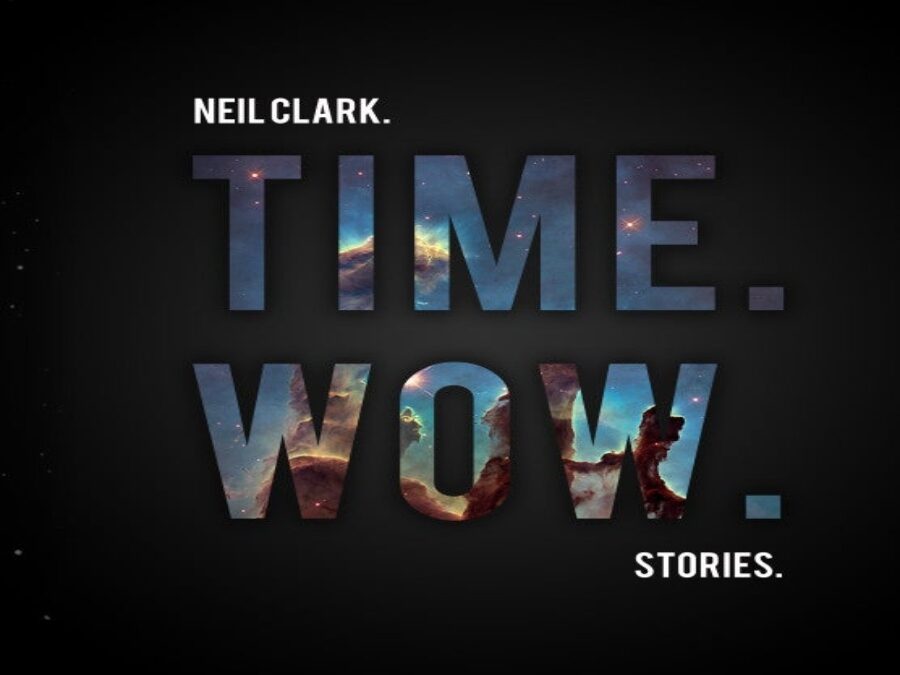
by K Chiucarello | Dec 18, 2020 | interview
I forget where I stumbled across your Twitter account (or when for that matter). But I do remember being struck immediately with how many emotions you were able to convey in such short word count, particularly within your Twitter stories. You have such a knack for building out these fantastical worlds but yet you keep them grounded in everyday commonalities that a lot of folks experience but never recognize. (Watermelon Skies in Wigleaf is one of my favorite examples of this). Can you talk a bit about how you focus your characters or narrators? How do you balance levity in their voices, especially in such dark and unknown concepts such as death, war, space, and the horror that is dating?
Thank you so much!
You know, when I’m drafting those Twitter micros, I usually overshoot the 280 character limit by quite a lot. But I find they can almost always be stripped back without detracting from whatever it is I’m trying to say. Writing them has been a great way to learn how to cut the fat out and get a story right down to the bare bones. It’s not for everyone, but it’s served me really well in the last couple years.
Rather than character, most of my stories tend to stem from something in my life that I want to explore. You mentioned Watermelon Skies there. That story came about after a tragic event in my life. I wanted to explore grief and friendship in the context of distance and isolation. Before I knew it, I was putting my best friends in space and killing off the narrator’s brother. I guess my characters are product of the stange environments I put them in, combined with a fair dollop of the autobiographical.
By far my biggest motivation to write is the joy and pleasure I get from it. So even in the sad stories, I’m usually going to have some element of humour in there. How do I approach balancing levity with heavier concepts? The same way I would approach it in life, I suppose. There are times when having a laugh and a joke is appropriate and helpful. There are times for sobriety, empathy and sensitivity. But I also think there’s real poignancy in the space between. The funny anecdote in the eulogy, for example. Or the banter between two soldiers in a war. Or the stand-up comedian backstage, in tears. Conveying that in writing can be risky, of course, but writing should always involve risk. Like in life, you just have to trust your judgement.
Also, high five for conflating horror and dating there. The line between the date and the existential horror story often = no line at all.
Time is such a banal measurement the majority of the world takes so much pleasure in — we construct our entire lives around the milestones that come with meaningless time frames. In your book you touch on so many recurring themes of big and small accounts of time: relationship arcs, fleeting moments, the span of a childhood or an entire lifetime, eras, years, seconds, single video frames or scenes. It’s really fascinating to me the topics that writers thread throughout their work and the way we zoom in on things that endlessly trouble us. With this book, do you feel you’ve released a lot of your obsession with time? Or do you feel like it’s a topic you’ll forever write about? A good spiral, per say…
So, I’m thirty-four now. Weird age. I’ve started doing that old man thing where I’m always harking back to the good old days. At the same time, I feel like I’m still an invincible young man. At work, I feel like one of the cool kids, then I pause and realise I’m talking to someone who was born after the year 2000 and I have a boss who is younger than me. I don’t know where I’m going with this, but yeah, I’m still obsessed with time. I look at the sunrise and think about how it’s actually the Sun from eight minutes ago. I think about how I’m interacting with people in different countries on social media and it’s the evening where I am but where they are it’s breakfast time. I think about the food in my fridge going past its sell-by date. I think about how, when dinosaurs roamed Earth, a year was 370 days long. The spiral continues, forever…
I’m curious if you consider your book linear or if you consider it a series of black holes that dip in and out of other universes. As a reader, I loved the playfulness of starting at a story entitled ‘When It’s Time To Go’ and ending on a story entitled ‘Tonight, I Fall From The Sky’.
Oh definitely something to be dipped in and out of. Story order was something I put very little thought into.
There’s this book called ‘The Book of Disquiet’ by Fernando Pessoa. It’s an incredible collection of these aching autobiographical fragments jotted down over the course of the author’s life. That book is one of my favourites, but it’s also a book I’ve never read from cover to cover. I just pick it up every now and again and read a random page or paragraph. That’s how I envisaged people reading Time. Wow.
Speaking of ‘When It’s Time To Go’, that piece was originally published in Okay Donkey during what seems like your first year publishing in the wild world of Web. Did you have any inkling back then that that story could potentially be part of something larger? Did these stories come about individually or grow out of each other?
Yeah 2018 was my first year of having stuff published online. That piece was out in the November. The imposter syndrome was very real at that time, and the reaction to that story was a great balm. Still, I’d never have believed I’d be working on a solicited collection the very next year.
Fun fact – that piece got added to the manuscript at a very late stage. We discovered a major plot hole (even by the standards of one of my plots!) in one of the stories. This was during peak first wave COVID and I was in no state of mind to fix it, so we made the decision to replace it with ‘When It’s Time To Go’. It’s the only piece in the book that’s previously published in a journal, but I think it works well with the themes in the book and it’s a worthy late addition. Shout out to Okay Donkey, too. They seem to be going from strength to strength, and they’re outstanding at supporting the writers they’ve worked with, even long after they’ve published them.
Long-live the writers that don’t realize they’re writers until their late 20s or 30s. What got you into writing? How did you realize there was an entire literary world on Twitter? Can you talk a bit about your daily writing practice and if/how you prioritize stories to put on your timeline versus stories you want to publish with larger mags?
Cheers to that – and shout-out to those in their 40s and above, too. It’s never too late!
Growing up, I channelled my creativity into drawing. English was actually one of my weaker subjects at school. I guess that changed when I was at university. I enjoyed the process of writing essays more than any of the lectures or tutorials. Sometimes I’d get feedback along the lines of, ‘Even though your arguments were off the mark, it was well written,’ and I’d be pretty chuffed with myself.
In terms of creative writing, I played around with different forms for ages before I found my voice. That’s a natural part of growing as a writer but it’s also painful, to be reaching for something and not being able to grasp it. I grew so much when I found flash fiction, which came on my radar through places like Cheap Pop and The Molotov Cocktail. Then a piece of Twitter microfiction caught my eye with the #vss365 hashtag (which stands for very short story, 365 days a year if anyone was wondering) and I thought I’d give it a go.
Most days, I at least try to post a Twitter micro on my timeline. I write them on breaks, on public transport, when I’m cooking, that sort of thing. They keep the creativity going, and it’s also a cool way to use social media, which I’m otherwise inept at. The stories I end up sending to journals/ mags are the ones I write during designated writing time, when I’ve set aside an hour or two to sit with my laptop and a cup of coffee or three. So, I suppose it’s not really a case of prioritising one over the other. The two things co-exist peacefully in my life.
Any writers, publications, or editors you want to lift up? Folks you’ve worked with that have shaped how you put work out into the world?
Well I’ve got to start with Cavin Bryce Gonzalez and Zac Smith from Back Patio Press, without whom Time. Wow. wouldn’t be a thing. They’re such cool guys and I loved putting a book out with them.
This side of the Atlantic, Jude Higgins does so much for flash fiction in this country, and she absolutely crushes it running the Flash Fiction Festival (which I had such a great time at in 2019) as well as the Bath Flash Fiction Award.
I also want to lift some of the wonderful Twitter micro fiction community, if that’s ok. The stuff these people put directly onto Twitter most days adds so much joy to my feed. I’ve put their Twitter handles here, too. I’d urge anyone to check them out and give them a follow:
Rachel Newcombe @rachelnewcombe8
MP McClune @MPMcCune2
Ellen K @poeticnihilist
Patchie Steve @PatchieSteve
DeRicki Johnson @derickijohnson
Voima Oy @voimaoy
Irene Dreams @_Irene_Dreams_
Jana Jenkins @janalynnjenks
Caleb Echterling @CalebEchterling
Barlow Adams @BarlowAdams
Roppotucha Greenberg @roppotucha
Natalie Reilly-Johnson @nreillyjohnson
Craytus Jones @craytusjones
Kelvin Rodrigues @KelvinROfficial
Lisa Manus @lisamanus
Laura Besley @laurabesley
The Alphabet @moomoosuem
250 Fiction @250Fiction
MKClark @mkclarkbooks
Anika Carpenter @StillSquirell
Sal Page @SalnPage
Alva Holland @Alva1206
Laila Amado @onbonbon7
Michael Clark @Michaelbigchees
Roz Levens @RozLevens
Carol Beth Anderson @CBethAnderson
No doubt I’ll have missed someone whose words I love, so please forgive me!
One of my favorite things in writing is how we get to play with punctuation. Visually, I was already sold on Time. Wow. purely because of where you placed the periods. It creates this flat tone that totally drives attention to the stupidity in the ways our lives are built and the way time halts getting at our true desires.
Shout out to the legendary Brent Woo, who did the cover art. He did such a great job of embellishing the punchiness of the title and drawing the eye to it – almost making the title a piece of art in its own right. I just love that cover.
It’s been interesting to hear people’s pronunciation of it, too. I call it ‘Time [pause] Wow’. Others don’t put the pause in. One time I showed it to someone who was like “Time dot Wow,” as if it was some website or something. I liked it, though.
This is a bit of a tangent, but here in the UK, we don’t call it a period. I didn’t know that’s what Americans called it until my late teens, when I was editing a group assignment with an American overseas student. He kept telling me to put periods in. I eventually worked out what he was talking about, but the few minutes before I did was a very confusing time in my life.
Not to choose favorites, but do you have favorites in this collection?
I’ve got a soft spot for the second story in the book, ‘Different’, because – spoiler alert – I’m a sucker for a twist ending.
The cool thing about releasing a collection is how people who have read it tell you their favourites, and it’s often ones you didn’t expect. A lot of people mention one called ‘Glue’, which I didn’t think was anything special. Conversely, few people have mentioned ‘Different’, so I’m glad I could give it some love on here.
I just want to end this conversation by saying thank you for creating the word ‘spaghettifying’. It’s one of my favorites now: the way it’s spelt, the way it wiggles around on the page, the way it rolls off the tongue.
Been a pleasure to chat with you, KC, and I love how your thoughtful questions have invoked some answers that are longer than most of the stories in my book!
You know, your concluding remark brings up the ultimate question of the universe that we can leave the readers to ponder. What would happen if you put spaghetti in a black hole?










Recent Comments